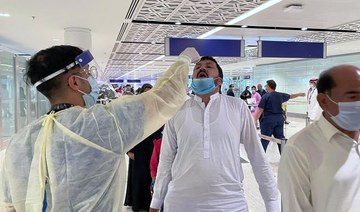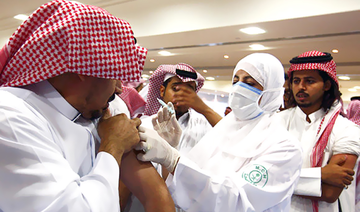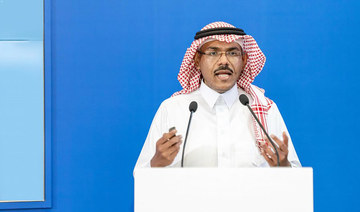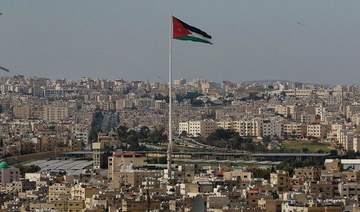DUBAI: For many GCC residents, the approach of the Gulf’s mild winter season signals a time for outdoor gatherings and festivities. But with many Middle East countries battling a second coronavirus wave, many are wary about stepping outdoors, especially as it coincides with the annual flu season when hospitals tend to be under the most pressure.
While vast amounts of experiment findings continue to be published on the nature of SARS-CoV-2 — the virus that causes COVID-19 — many have been left wondering whether it is worth getting a flu shot this winter.
In early October, medical experts around the world went on the record to confirm the flu shot’s inability to protect people from COVID-19 in an effort to dispel myths surrounding the coronavirus.
However, health authorities in many countries believe the potential benefits of getting the flu shot cannot be overlooked; they are asking people of all ages to opt for the annual jab as soon as possible.

For instance, Saudi Arabia’s health ministry has just launched a campaign recommending residents receive a flu jab by sending SMS messages to residents directing them to nearby health centers. A concomitant awareness drive is providing residents with free vaccinations at large shopping centers.
The health ministry recently said that residents who suffer from COVID-like symptoms or who have the virus can still safely receive a flu vaccine.
Dr. Richard Kennedy, co-director of the Mayo Clinic Vaccine Research Group, is among the many doctors worldwide who believe that taking the flu shot is advisable.
“In addition to protecting recipients from influenza, the flu shot also reduces their chances of being infected with both SARS-CoV-2 and influenza at the same time,” he told Arab News from Rochester in the US.
Since influenza and COVID-19 share many symptoms, taking the flu shot will help alleviate the burden on hospitals and testing centers as it reduces the risk of illness by 40-60 percent.
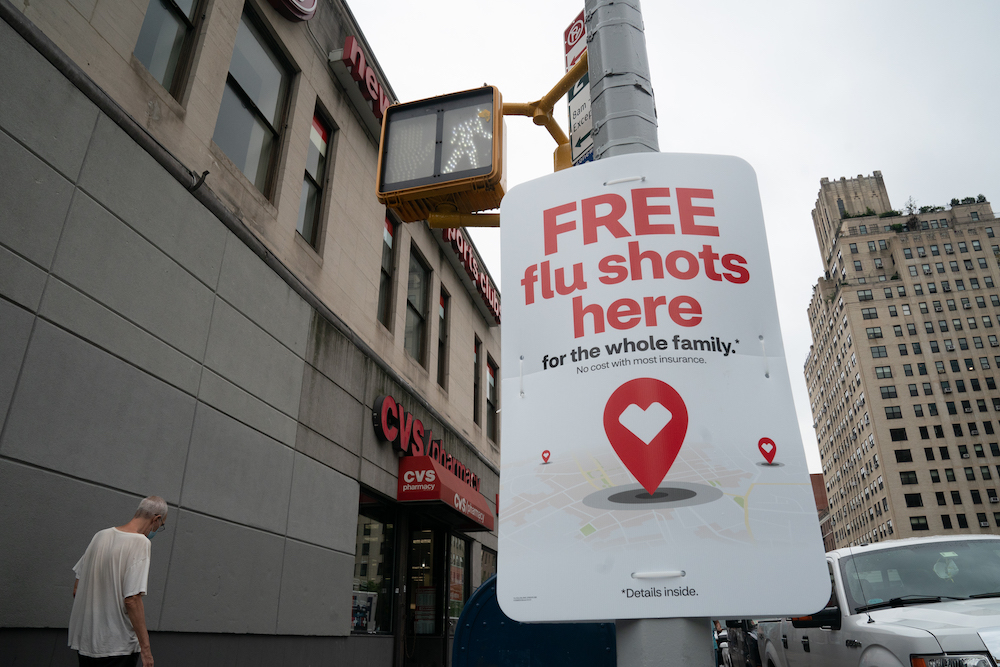
Health authorities in many countries believe the potential benefits of getting the flu shot cannot be overlooked; they are asking people of all ages to opt for the annual jab as soon as possible. (AFP/File Photo)
However, the effectiveness of the flu shot vaccine varies from year to year, says Kennedy.
“It depends, in large part, on how close the vaccine matches the virus circulating in the community,” he said. “It is important to note that while the vaccine won’t protect everyone from getting sick, it can provide partial protection in many ways.”
In fact, several flu vaccines have also been designed specifically for adults over the age of 65.
“The vaccine can prevent you from having severe illness and going to the hospital, and reduces this risk by 70-80 percent in young children, by 50-60 percent in adults, and by 40 percent in the elderly,” said Kennedy.
Additionally, the shot also protects patients with chronic lung or heart disease or diabetes from developing long-term issues after influenza infection and prevents further development of bacterial pneumonia.
INNUMBERS
COVID-19
* 96.3% recovery rate in Saudi Arabia.
* 2.5% mortality rate in MENA region.
* 2.8% mortality rate in OECD countries.
* 2.4% mortality rate in the world.
In any event, the annual death rate linked to the flu remains high. Although the flu shot has been around for a long time, the World Health Organization (WHO) estimates that between 290,000 and 650,000 people die each year due to complications from seasonal influenza.
In the US alone, research shows that an estimated 38 million people were sick with influenza in 2019-2020, out of which 18 million were sick enough to visit a health-care provider. A total of 400,000 of those patients were hospitalized and 22,000 died.
“Every flu season is different and so these numbers vary widely, also by geographic region,” said Kennedy.
While cases of influenza may be lower in the Middle East, studies suggest that strains of the infection may affect 10.2 percent of the Arab population each year. This rate, however, may not be reflected accurately this winter considering the similarity in symptoms between the flu and the coronavirus.
As a result, ambiguity surrounding the timeline of an effective and widely available COVID-19 vaccine has left many second-guessing the need to take the flu shot while eagerly awaiting a solution to the paralyzing pandemic.

Dr. Julio Gomez, consultant pulmonologist at Fakeeh University Hospital in Dubai, told Arab News that people in the region should certainly consider getting a flu shot to ease this pressure. (Supplied)
As of November, over 52 million people worldwide have been infected with the coronavirus, of which more than a million have succumbed to the infection.
At the same time, several pharmaceutical companies have trumpeted possible vaccines that could be rolled out before the holiday season.
On Monday, US pharma giant Moderna revealed its new COVID-19 vaccine was almost 95 percent effective in preventing the disease in a study involving 30,000 people.
The announcement came close on the heels of a claim by Pfizer and BioNTech that their vaccine had proved more than 90 percent effective in preventing infection in a study involving over 43,000 participants.
With much optimism, Dr. Albert Bourla, Pfizer chairman and CEO, described the new vaccine as a “much-needed breakthrough” at a time when infection rates are setting new records leading to the overcrowding of hospitals and posing new challenges for many struggling economies.
While the preliminary data seems promising, further details on the effectiveness of both vaccines among vulnerable groups, the extent of immunization and availability of distribution are yet to be published.
******
READ ARAB NEWS' DEDICATED CORONAVIRUS SPOTLIGHT HERE
******
It is also likely to be several months before any vaccine can bring the pandemic to a halt. The twin threat of COVID-19 and influenza this winter therefore remains a pressing concern for health professionals.
Dr. Julio Gomez, consultant pulmonologist at Fakeeh University Hospital in Dubai, told Arab News that people in the region should certainly consider getting a flu shot to ease this pressure.
With these factors in mind, the flu shot can help boost one’s immunity and reduce the risk of “dual infection,” he said.
“It is highly recommended to take the influenza shot on a yearly basis to help prevent flu infection and protect those more vulnerable.
“Once the COVID vaccine is finalized and becomes available, it is (also) recommended that people get it as well,” he said.
Gomez referred to the low coronavirus mortality rate in the UAE — 0.4 percent — pointing out that “anticipation and early planning” are vital to minimizing fatalities.

The twin threat of COVID-19 and influenza this winter remains a pressing concern for health professionals. (AFP/File Photo)
“By implementing a strong emergency preparedness plan, the UAE has avoided the oversaturation of vital healthcare resources, such as ICU beds and ventilators, and put in place support measures, which have been vital to reducing the impact of COVID-19 on people and the healthcare system,” he said.
When it comes to studying the nature of the COVID-19 infection, Gomez feels there is still not enough data to conclude the virus is losing steam.
While research has shown the virus has already mutated, there is no proof it is affecting the severity of the disease it causes once it infects a person.
“With the continued use of precautionary measures and the future provision of the COVID-19 vaccine, I am confident that we will be able to find a balance between this virus and the human being,” said Gomez.
For the time being, his only advice to residents of the region is to strictly follow the recommended preventive measures (wearing of masks, handwashing and social distancing) to reduce the infection rate and to take the flu shot.
--------------------
Twitter: @jumana_khamis




